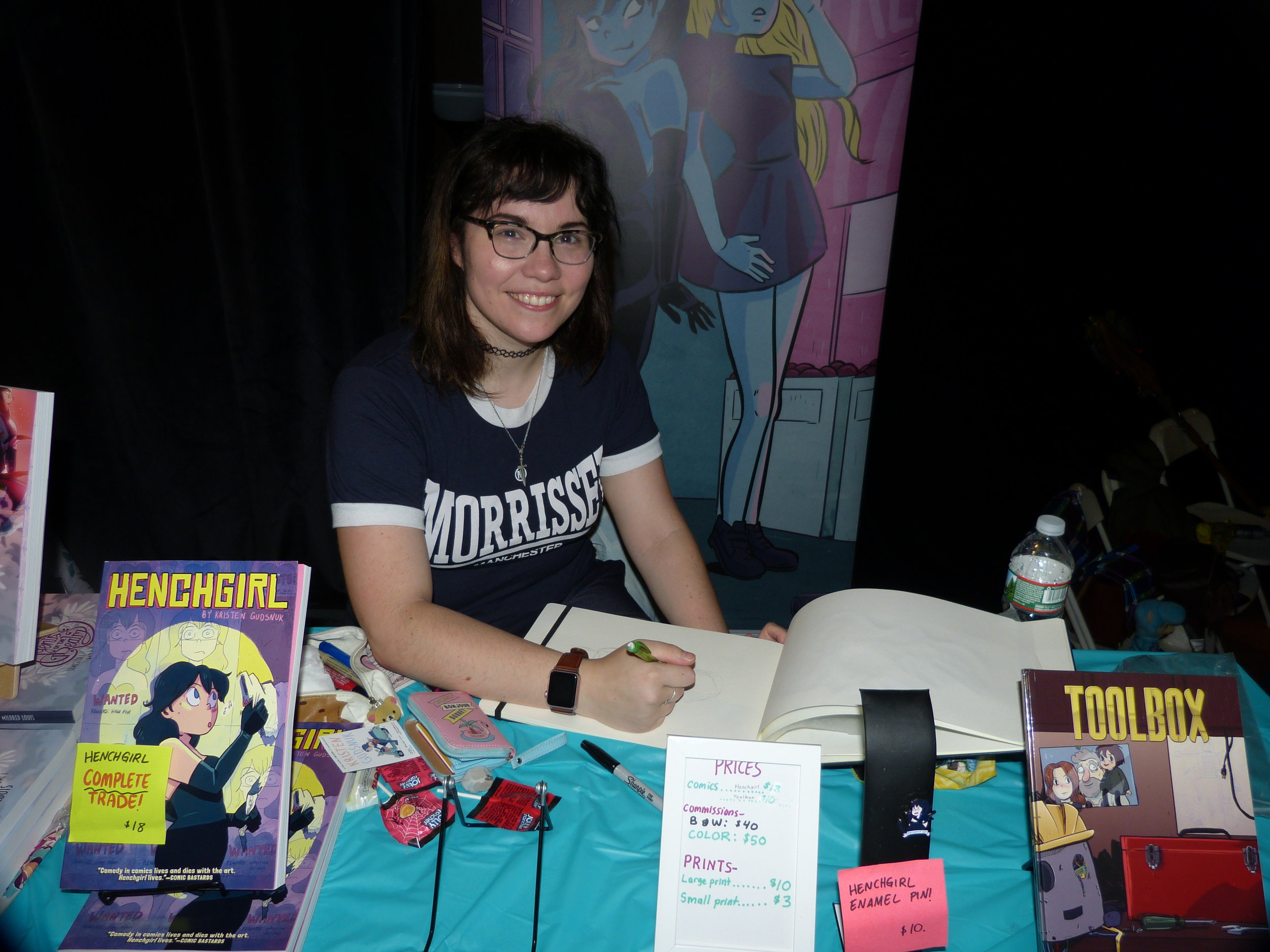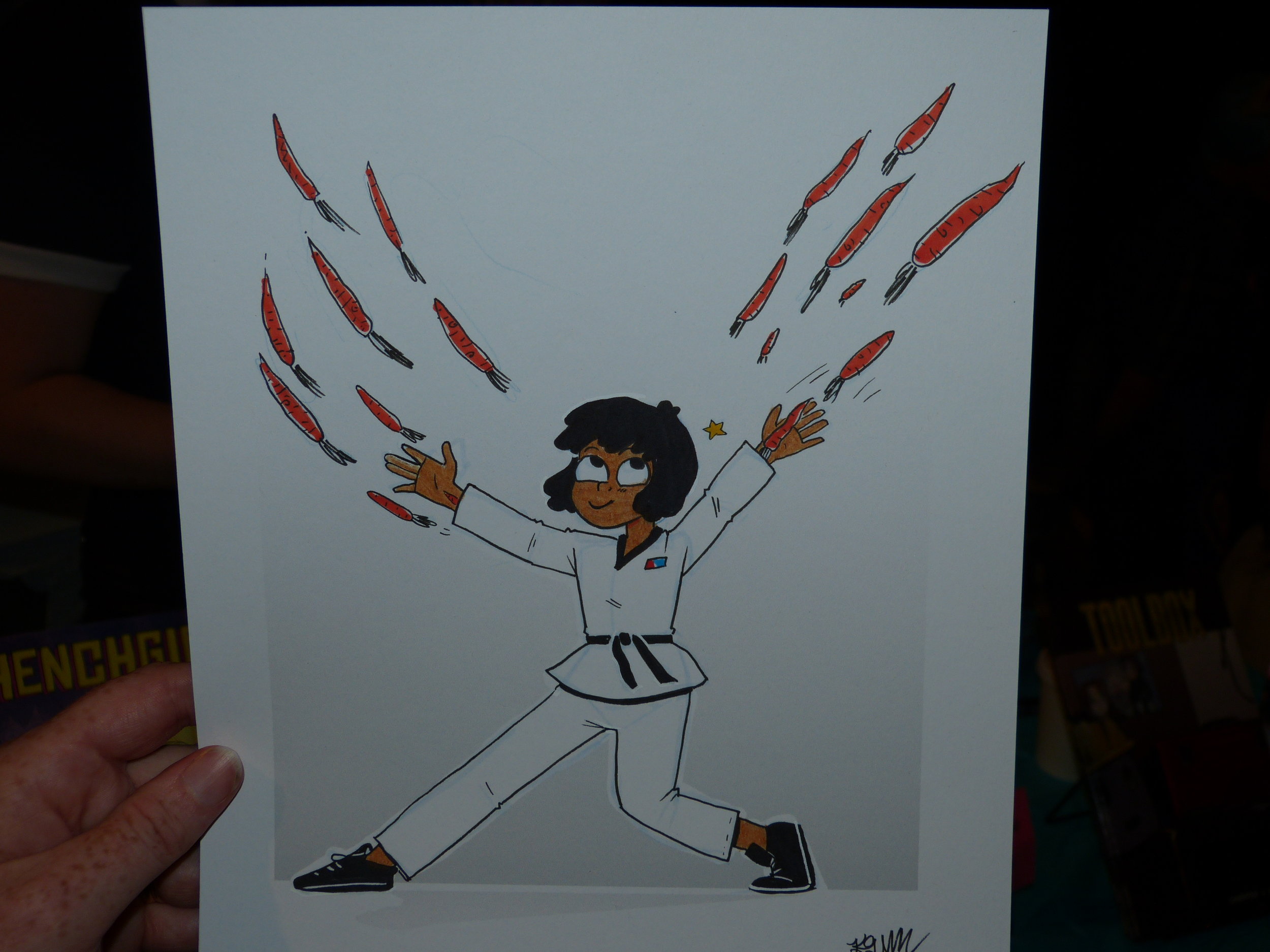Henchgirl Review
Back in July, Smalerie shared a recipe for a hamburger. What it lacked in deliciousness it made up for in creativity and in its physical resemblance to the product that inspired it - the Cthulhu burger in Kristen Gudsnuk's Henchgirl. At the time, she mentioned she wasn't going to review the book; the focus of the post was the horrifying delicacy she'd created. Since then, we've discussed the book at Comicazi Book Club, and hosted Kristen as one of our guests of honor at LadiesCon.

So it seems like a good time to review the book and let you know that if you haven't jumped on this bandwagon, you should.
Henchgirl is the story of Mary Posa, a somewhat aimless twenty-something. She's a pretty typical young adult on the surface - she lives with roommates, has a bit of insecurity about her looks, and is stuck in a job that she's not sure her heart is really into. On the other hand, one of her roommates has started manifesting weird powers, her sister is one of the hottest up and coming superheroes, and her dead-end job is working as a goon for Monsieur Butterfly, a supervillain. Even Scott Pilgrim's life wasn't quite this weird and complicated.
One of the real strengths of Henchgirl is that it handles some pretty heavy themes - identity, parental expectations, and free will - with a playful sense of humor. There are background jokes aplenty, as the Cthulhu burger attests. Mary's roommate Tina develops a strange power that is at once humorous, disturbing, and ultimately world-threatening. There's a scene where Mary is delighted to be mistaken for someone named Consuelo...until she realizes the person in question shares a name with her grandmother. Even some of the very darkest moments, such as this world's mightiest hero and Superman analog, Mr. Great Guy, losing his beloved in a tragic accident, have humorous results.
This approach can be cynical and overdone (I'm looking at you, Garth Ennis' The Boys), but in Gudsnuk's hands it never teeters over that line. Instead, the humor serves as both a relief from the potential angst and also serves to underscore how deeply weird it is to be human, especially a young adult. Your problems in your twenties certainly feel momentous and world-ending - Gudsnuk just makes that literal for poor Mary. One of my favorite running gags is Mary's fervent desire to be a taxpayer - a symbol of a "normal" life.
The other thing I love about this book is its unapologetic girlyness. A major plot point revolves around a magical girl in the style of Sailor Moon, Lovely Celestial Angel Amelia. Mary herself has a fondness for pink glitter, and of course, she works for a supervillain whose shtick is butterflies. Mary's doesn't worry about being tough or hard - she just does her job and if she can look good while doing it, she will. At the same time, no one in the cast is limited by their gender roles. Men love butterflies and women heft heavy objects with ease, and it's never a big deal - it's just how things are.
So, if you're looking to read a complete story about the pains of growing up, complete with family drama, romance, and carrots, pick up Henchgirl. If you've already read it, tell me what you thought in the comments!

